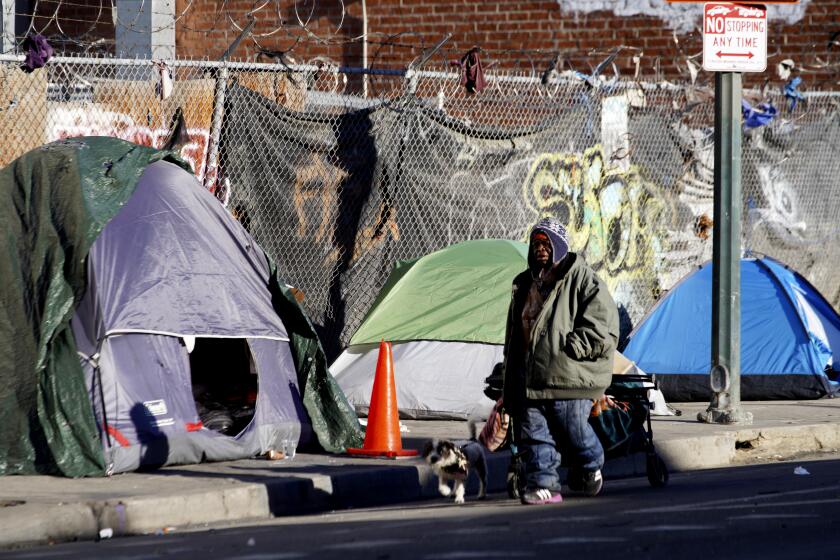Holes in the bag ban
There are two things wrong with the plastic bag ban imposed this week by the Los Angeles County Board of Supervisors. One is that charging a small fee for carryout plastic bags is a better solution than a ban. Fees have hugely reduced the use of the bags in countries that charge them while offering an option to consumers. The other problem is that a patchwork of municipal laws is confusing to consumers and inefficient for large chain stores.
Yet for both wrongs, the blame belongs not with the supervisors but with the Legislature, which pushed municipalities into this situation by passing one law that prohibited them from imposing fees on plastic bags until 2013, and rejecting another law that would have addressed this source of pollution on a statewide level.
Given the Legislature’s bumbling and the continued damage caused by carryout bags, the board did the best thing it could. If more large municipalities follow its lead — particularly the city of Los Angeles — the grocery industry, which supports a statewide solution, might join in prodding the Legislature into action.
One way or another, California should follow the lead of the more than 30 countries — and many more local governments — that have acted against plastic bags, a list diverse enough to include Papua New Guinea, France, Botswana and China. People in these countries appear to be getting along just fine without the bags, which choke waterways, contribute to urban and wilderness litter, are the second-most-common source of trash on California’s beaches and a key ingredient in the giant patches of plastic debris that are polluting the oceans. California’s consumers need to understand that plastic bags are not as “free” as they seem; the cost is rolled into the price of the goods they buy. What’s more, the state’s taxpayers pay close to $25 million a year to rid streets, beaches, parks and waterways of the bags.
Supervisor Michael D. Antonovich’s objection to the county ban — that poor people won’t be able to afford to pick up after their pets if they don’t receive plastic bags from stores — is off base. Only carryout bags, which are responsible for most of the plastic bag trash, would be banned. The smaller bags in which people put their produce, and in which this newspaper is delivered, tend to be disposed of properly in recycling or trash bins and are not affected by the ban.
The state tried beefing up recycling efforts for carryout plastic bags. It didn’t work. Californians use more than 120,000 tons of the bags each year, and recycle 5% of them. Now the Legislature needs to take stronger action, through either a statewide fee or a statewide ban, to put an end to the growing patchwork of local regulations.
More to Read
Start your day right
Sign up for Essential California for news, features and recommendations from the L.A. Times and beyond in your inbox six days a week.
You may occasionally receive promotional content from the Los Angeles Times.






